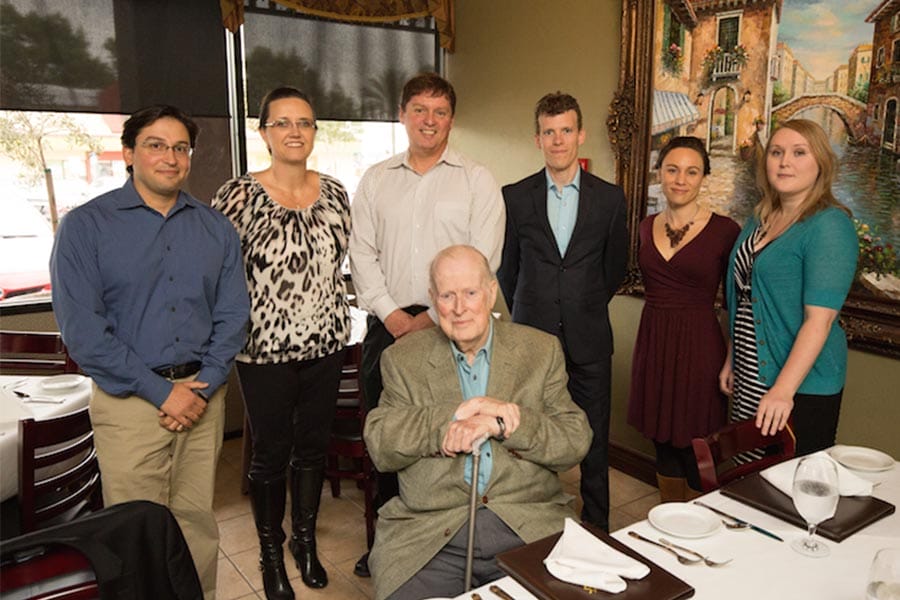Passings: Michael Scriven, Influential Professor in the Field of Evaluation

Michael Scriven, a distinguished professor in the Division of Behavioral & Organizational Sciences and one of the giants in the field of evaluation, has died. He was 95.
Scriven, who arrived at CGU in 1997, was a Renaissance man—someone who taught in departments of philosophy, psychology, mathematics, the history and philosophy of science, law, evaluation, and education over his more than five decades in academia. He met with Albert Einstein, debated ideas with leading intellectuals, designed and oversaw construction of his house, researched parapsychology, and was a connoisseur of art and music.
He was a prolific author, producing more than 450 publications across a spectrum of disciplines and writing or co-authoring more than a dozen books. His revolutionary ideas influenced and challenged scholars, including many leaders in the field who did not always agree with his views but who held him in deep respect.
Scriven received an honors BA in Mathematics and then an honors MA in the Philosophy of Mathematical Logic at the University of Melbourne before receiving his PhD in Philosophy at Oxford University. Nearly 50 years after this PhD, Scriven received an honorary doctorate in Education from the University of Melbourne. He served as president of the American Educational Research Association and the American Evaluation Association and received the American Evaluation Association’s Lazarsfeld Medal for contributions to evaluation theory.
“Professor Scriven was a trusted friend and colleague, and he mentored hundreds of students and junior colleagues in the field of evaluation. He was instrumental in developing and providing leadership for the evaluation graduate programs and the Claremont Evaluation Center at CGU and will be sorely missed by his former students and colleagues,” said Distinguished University Professor Stewart I. Donaldson. “He demonstrated his admirable generosity by establishing the Faster Forward Fund with his estate to provide student and project support to further advance the transdiscipline and practice of professional evaluation.”